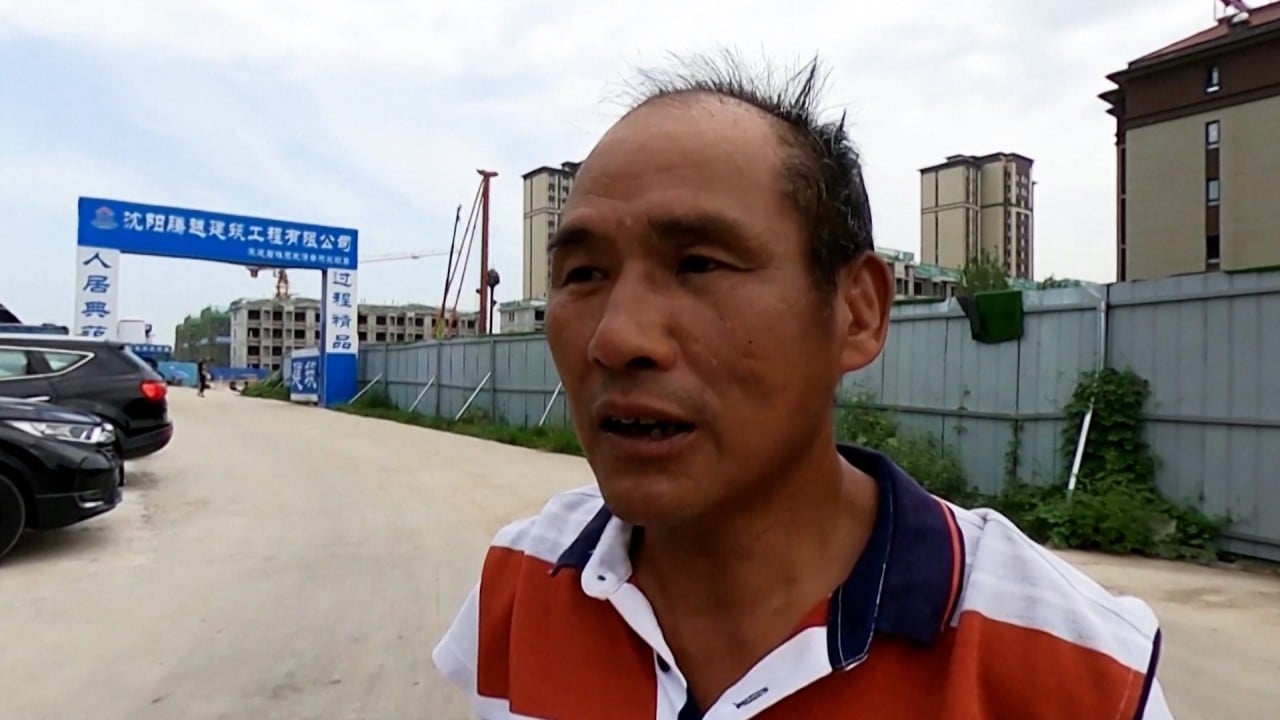The traditional field trips came in the lead-up to the party’s third plenary session in July, where its top policymaking body – the Central Committee – will set out the country’s general economic strategy for the next five to 10 years.
“The new measures certainly show that the authorities want to put a floor under the property slump, at least for the time being,” said George Magnus, a research associate at Oxford University’s China Centre.
Vice-premier He Lifeng, who inspected the troubled property sector of Zhengzhou in central Henan province, reiterated how the health of the property market was linked to social wellness and economic development.
“The real estate sector concerns people’s interests and the overall situation of China’s economic and social development,” He told officials nationwide during a video conference on Friday.
Officials should “profoundly understand” this relevance, He said, urging them to “fight the tough battle” of dealing with unfinished housing projects around the country and help to “assimilate” excess inventory, state news agency Xinhua reported.
The People’s Bank of China also said on Friday it would provide 300 billion yuan (US$42.3 billion) in cheap loans to help state-owned enterprises buy unsold housing inventory, apart from easing down payment rules and cutting interest rates for mortgages.
The property sector, an engine of growth for decades, has become a big drag on the world’s No 2 economy as it seeks post-Covid recovery. A Goldman Sachs estimate put China’s saleable housing inventory at 13.5 trillion yuan at the end of 2023.
There were 391 million square metres (4.2 billion square feet) of new housing for sale in the first four months of this year, nearly a quarter more than in the same period last year, according to official data. Analysts at Tianfeng Securities estimated it would cost around US$1 trillion to buy the entire stock.
“The third plenum will likely emphasise the point and may well come up with new measures and possibly even an agency to collate funding to buy up inventory, and so channel cash flows to developers,” Magnus at Oxford University said.
“However, the main focus of the plenum is almost certainly going to be on industrial policy and new productive forces.”
According to Magnus: “If China can’t stabilise the real estate market and lift confidence among homeowners and the middle class, the new productive forces strategy will count for little, except for favoured firms.”
Real estate generates about a fifth of China’s fiscal revenue and accounts for nearly 70 per cent of total household assets, as well as about a quarter of bank loans, official data show.
“The moves send a clear signal that there’s real political support from the top leadership for the stabilisation of the property sector,” a political economist said on condition of anonymity as he was not authorised to speak to the media.
“Allowing local governments to buy homes and turn them into subsidised housing will restore confidence and change the public perception that Beijing is hostile to the property sector,” the economist said.
“While it is Xi’s catchphrase that ‘houses are for living in, not for speculation’, it does not mean Beijing wants [the sector] to collapse,” he added.
“The stabilisation of the sector can help spur domestic consumption, boost demand in a vast chain of industries and win time for China’s economic restructuring as it tilts towards an innovation-led economy while facing trade tariffs and tech sanctions from the US and its allies.”
Xie Maosong, a senior researcher at the National Institute of Strategic Studies at Tsinghua University, said a healthy property sector not only mattered for public confidence in the economy, but also had significant implications for financial security.
“The national team must come to the rescue. It concerns not only [troubled] developers, but also China’s economic and financial security,” Xie said. “Beijing will not allow a property crisis to take place while the US has already initiated a financial war.”
However, this did not mean China would allow the property sector to become highly speculative again, Xie said.
“There will be a balance between market demand and government intervention in order to achieve a sound recovery of the sector, though the effectiveness largely relies on detailed policies and implementation at local government levels,” he said.
China introduced a slew of forceful measures in 2020 to tackle runaway real estate growth, amid concerns about the economy’s overreliance on the sector, rampant speculation that had put housing prices out of reach for most people, and high leverage by developers.
But as prices slumped and developers went bankrupt, authorities started to ease the policies in 2022, with purchase curbs lifted in most cities and banks asked to extend loans to qualified developers.
However, those measures failed to stem the downturn. New home prices fell for a 10th consecutive month in April, registering the fastest month-on-month decline since November 2014. Separate data showed property investment in the first four months of the year falling nearly 10 per cent from a year earlier.
Property sales by floor area in January-April dropped by more than 20 per cent year on year, while new construction starts fell by around 25 per cent. Funds raised by developers also fell by nearly a quarter year on year.








